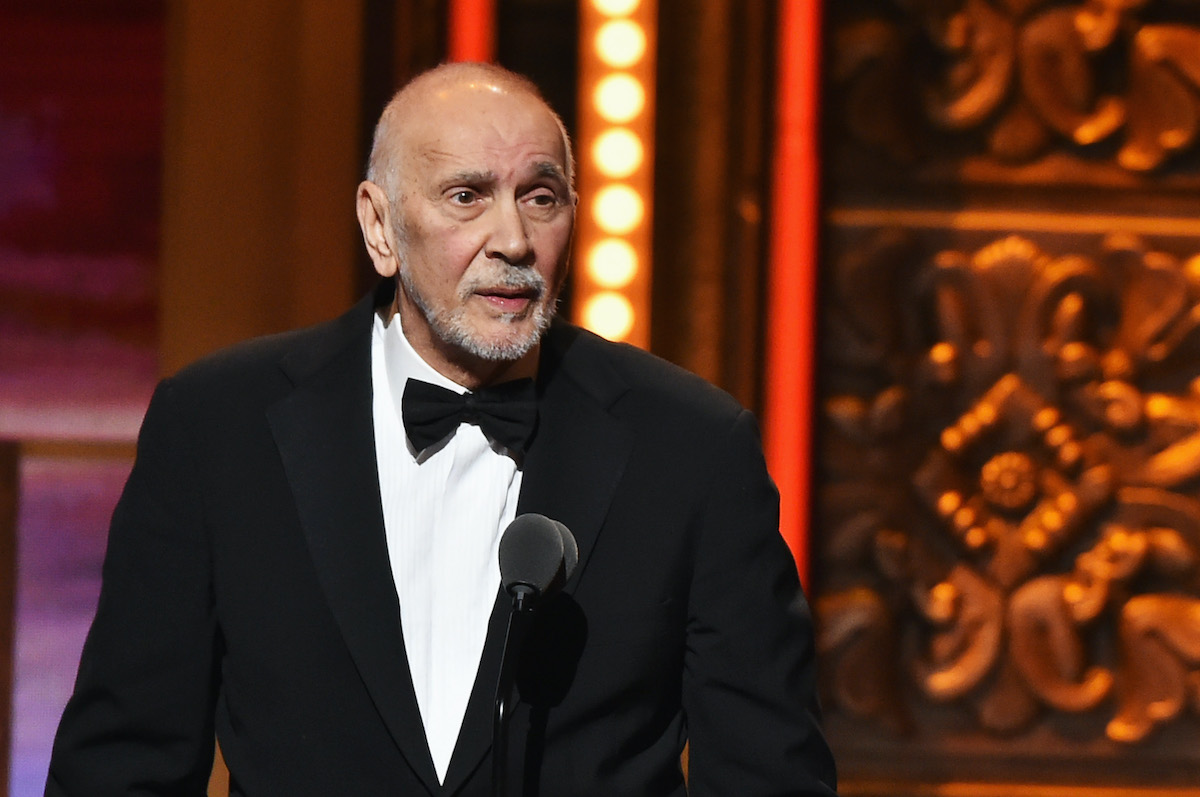Frank Langella, Fired by Netflix, Just Doesn’t Get Why He Can’t Put His Hands Anywhere He Wants

Last month, Frank Langella was removed from the upcoming Netflix miniseries The Fall of the House of Usher, based on Edgar Allen Poe’s short story of the same name, after an investigation into misconduct allegations concluded.
Langella has now publicly responded to his firing in the form of a guest column published on Deadline. Some of it is the kind of standard response we’ve come to be used to in this kind of situation, starting with a declaration of having been “canceled” in the opening sentence.
But unlike most celebrity responses to allegations of misconduct, Langella doesn’t deny what Netflix found to be his “unacceptable behavior.” He just legitimately does not seem to understand why it’s unacceptable to begin with.
Here is what Langella says happened, in his own words:
On March 25 of this year, I was performing a love scene with the actress playing my young wife. Both of us were fully clothed. I was sitting on a couch, she was standing in front of me. The director called “cut.” “He touched my leg,” said the actress. “That was not in the blocking.” She then turned and walked off the set, followed by the director and the intimacy coordinator. I attempted to follow but was asked to “give her some space.” I waited for approximately one hour, and was then told she was not returning to set and we were wrapped.
Langella says an investigation began and a week later, he was contacted by an HR rep, who asked if the actor had responded to the show’s intimacy coordinator’s suggestions of choreography by calling them “absurd.” Langella confirmed that he did, adding “And I still think so.”
“It was a love scene on camera,” Langella’s column reads. “Legislating the placement of hands, to my mind, is ludicrous. It undermines instinct and spontaneity.”
Frank Langella has been working in theatre, film, and television for 60 years and it is confounding that he could work for that long and build up such a respected career and still not understand that you cannot simply touch people anywhere you want.
The thing that’s rough about reading this is that you can tell how right he thinks he is — he’s gotten this far in a decorated career taking it for granted that nobody can tell an actor where to touch someone in a a love scene. https://t.co/t2SfaAXqqH
— Linda Holmes (@lindaholmes) May 8, 2022
Actors are told where they can and cannot put their hands all the time. That happens on all levels of blocking but is especially important with things like intimacy coordination or fight choreography. If Langella had been working out blocking for a fight and called the very idea of fight choreography “absurd” because it stifled his creativity and spontaneity, his argument would seem wildly unreasonable.
Oh piss off, Frank. *Anything* on a stage, a set, in rehearsals, a workshop, *even* improv involving violence or intimacy SHOULD be regulated and pre-approved by *everyone* involved. Don’t whine like a baby because *you* couldn’t understand common decency. https://t.co/tzpEDuoYve
— Chris J (@OfficialCDJ) May 9, 2022
you shoot a love scene the way it’s choreographed. same as a dance number or a fight scene. end of story. https://t.co/7HppSG5Ce9
— Scott Weinberg (@scottEmovienerd) May 8, 2022
Langella obviously doesn’t have any respect for the idea of intimacy coordination and vaguely seems to tie it to the larger Me Too movement, making allusions to an “increasing madness that currently pervades our industry.” Essentially, the villain in Langella’s story is women’s desire for bodily autonomy.
Despite laying out the ordeal in his own words, Langella still doesn’t seem to connect the dots between the events he describes. It’s clear he thinks the unnamed actress was overreacting to him having “touched her leg.” But he also says that there were other complaints, presumably from the same actress although that’s not explicitly specified. They include telling an “off-color joke,” calling her “baby” and “honey,” and hugging her or touching her shoulder in a way that made her uncomfortable.
There is a huge difference between two actors who trust and respect each other agreeing to allow “spontaneity” to be a part of developing intimate scenes, and what Langella is describing here without realizing it, which is a woman who does not feel comfortable or safe with her acting partner and needs him to respect their choreography.
The very act of resisting the intimacy coordinator’s role suggests a lack of understanding of how behavior during love scenes can affect other people. It almost suggests that it is natural not to be able to control yourself during these scenes.
— Linda Holmes (@lindaholmes) May 8, 2022
Langella writes that as “the leading actor, it requires, in my opinion, that you set an example by keeping the atmosphere light and friendly.” I don’t know how he thought he was establishing a “light” tone on set by actively ignoring his colleague’s discomfort but it’s not surprising that that didn’t work out for him.
To Netflix’s credit, they acted fast, and Langella has already been replaced by Bruce Greenwood, aka Star Trek and Star Trek: Into Darkness’ Pike. And kudos to the actress here who set boundaries and refused to let them get trampl
(image: Theo Wargo/Getty Images for Tony Awards Productions)
Want more stories like this? Become a subscriber and support the site!
—The Mary Sue has a strict comment policy that forbids, but is not limited to, personal insults toward anyone, hate speech, and trolling.—
Have a tip we should know? [email protected]
